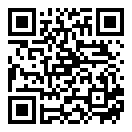Studying the Problems of Intercultural Communication
چکیده و کلیدواژه فارسی (Persian)
- اسمیت، آلفرد، 1383، ارتباطات و فرهنگ، ترجمة طاهره فیضی و همكاران، تهران، سمت.
- برگر، پیتر و بریجیت برگر، 1394، ذهن بیخانمان: نوسازی و آگاهی، ترجمة محمد ساوجی، تهران، نشر نی.
- تميميآمدی، عبدالواحد، 1378، غررالحکم و دررالکلم، ترجمة رسول محلاتی، تهران، نشر فرهنگ اسلامی.
- خامنهای، سیدعلی، 1388، راهبردهای سیاست خارجی: برگرفته از بیانات حضرت آیتالله خامنهای در جمع سفرا و کارداران جمهوری اسلامی ایران در خارج از کشور، تهران، انقلاب اسلامی.
- ـــــ ، بیانات در 7 آذر 1390.
- ـــــ ، بیانات در دیدار اعضای شورای عالی انقلاب فرهنگی، 19 آذر 1392.
- ـــــ ، پیام به کنگره عظیم حج، 12 فروردین 1377.
- خانیکی، هادی، 1395، «مفهوم خود و دیگری در ارتباطات میانفرهنگیِ امروز: سخنرانی در همایش گفتوگوی ایران و افغانستان»، وبگاه رسمی هادی خانیکی، (بازبینی، 20 آبان 1396).
- عاملی، سیدسعیدرضا، 1395، استثناگرایی آمریکایی، اروپامرکزی و دیگری سازی مسلمانان، تهران، امیرکبیر.
- کلینی، محمدبنیعقوب، 1369، اصول کافی، ترجمة جواد مصطفوی، تهران، کتابفروشی علمیه اسلامیه.
- کمالیپور، یحیی، 1382، «جامعهشناسی: عناصر ارتباطات بینفرهنگی و خاورمیانه»، ترجمة علی میرسعید قاضی، رسانه، ش 56، ص 98-103.
- کیلیان، دی کیل و کریس ای تری، 1395، زوجهای میانفرهنگی: چالشهای روانشناختی زوجهای میانفرهنگی و راهکارهای حفظ و بهبود روابط، ترجمة بهرام مرادیان و سمیه گودرزی عدل، تهران، آوای نور.
- گودیکانست، ویلیام بی، ۱۳۸۳، پیوند تفاوتها؛ راهنمای ارتباط کارآمد بین گروهی، ترجمة علی کریمی (مله) و مسعود هاشمی، تهران، مؤسسه مطالعات ملی، تمدن ایرانی.
- نجاتی حسینی، سیدمحمود، 1390، «نسبت «خود- دیگری» در گفتمان دعای شیعی»، راهبرد فرهنگ، ش 14 و 15، ص 8-38.
- نریمانی، امیررضا و همكاران، 1394، «مفاهمه، راهبردی بنیادی در توسعه ارتباط صنعت و دانشگاه»، راهبرد توسعه، ش 43، ص 161-180.
- يوسفزاده، حسن، 1393، الگوي ارتباطات ميانفرهنگي، پاياننامه دکتري، قم، دانشگاه باقرالعلوم.
- ـــــ ، 1394، «تلقی از «دیگری» در اندیشه اسلامی»، پژوهشنامه تبلیغ و ارتباطات دینی، ش 5، ص 121-148.
- ـــــ ، 1397، اسلام و ارتباطات ميانفرهنگي: ارتباط با دیگری، قم، جامعةالمصطفی.
- Anderson, L. E, 1994, A new look at an old Construct: A cross-cultural adaptation, International Journal of Intercultural Relations, 18 (3), p. 293–328.
- Ang, Soon, & Linn Van Dyne, 2015, Handbook of Cultural Intelligence, routladge, London and Newyork, Taylor and Francis.
- Bennett, Milton, 1998, Basic concepts of intercultural communication, intercultural press, Inc.
- Berger, L, & Tomas Luckmann, 1966, The Social Construction of Reality, Garden City, New York.
- Berger, L, 2001, Foreword. In Neville, R.C. (Ed.), the human condition, Albany: State University of New York Press, in Irja pietila, Intercultural adaptation as a shared learning process in the life-course.
- Berger, L , 1979, The heretical imperative, contemporary possibilities of religious affirmation, Anchor/ Doubleday, Garden City, NY.
- Black D, et al, 2010, Complicated Currents: Media Flows, Soft Power and East Asia, Melbourne: Monash University e Press.
- Bowe, Heather, & Kylie Martin, 2007, Communication across Cultures: Mutual Understanding in a Global World, Cambridge university press. Available at: https://books.google.com.
- Brandt, Adam, 2008, On "interculturalism", Annual Review of Education, Communication and Language Sciences, v. .5, p. 205-229.
- Durant Alan & Ifan Shepherd, 2009, Culture and Communication in Intercultural Communication, European Journal of English Studies, v. 13, n. 2, p. 147–162.
- Fantini, A, & Tirmizi, A, 2006, Exploring and assessing intercultural competence, World Learning Publications. Available from http: // digitalcollections.sit.edu / worldlearning-publications/1 Griffin, EM, (2012), a first look at communication theory, New York, McGraw-Hill.
- Griffin, EM, 2012, A first look at communication theory, 8th Ed. New York, McGraw-Hill.
- Gudykunst, W, 1997, “Cultural Variability in Communication: An Introduction,” Communication Research, n. 24, p. 327–348.
- Gudykunst, W, 2003, Communicating with Strangers: An Approach to Intercultural Communication, McGraw-Hill.
- Hall, Edward T, 1976, Beyond Culture, Anchor, New York.
- Hofstede, G, 1997, Cultures and organizations. Software of the Mind, Intercultural Cooperation and its Importance for Survival. The United States: McGraw-Hill.
- Huber Martina -Kriegler, et al, 2003, Mirrors and windows: An intercultural communication textbook, Strasbourg, Council of Europe Publishing.
- Kiss, Gabriella, 2008, A theoretical approach to intercultural communication, Aarms, v. 7, n. 3, p. 435-443.
- Matilda Kaba, 2015, Mutual understanding in an intercultural company, Master of Science Thesis Stockholm, Sweden (available at: http: //www.diva-portal. se/smash/ get/diva2:843097/ fulltexto1.pdf)
- Nakayama Thomas K, & Martin, Judith N, 2010, Intercultural communication contexts (fifth edition), Published by McGraw-Hill.
- Neuliep, James W, 2000, Intercultural Communication: A Contextual Approach, Houghton Mifflin Company.
- Novinger, T, 2001, Intercultural Communication. Austin, TX: University of Texas Press.
- Raduan Che Rose, & Naresh Kumar, 2008, A review on individual differences and cultural intelligence, Uluslararas Sosyal Araştrmalar Dergisi, The Journal of International Social Research, v. 1/4 summer.
- Rogers, William, et al, 2002, Hall and the History of Intercultural Communication: Keio Communication Review No. 24.
- Samovar, Larry A, & Richard E. Porter, 1991, 1998, 2012, 2013, Intercultural Communication: A Reader, Cengage Learning.
- Scannavini, Katia, 2013, The necessity of Intercultural Communication for a peaceful world, Academicus - International Scientific Journal, p 172-188.
- Stephen, M, et al, 2017, Religion, Culture, and Communication, Online Publication Date.
- Tan, M, 1994, Establishing Mutual Understanding in Systems Design: An Empirical Study, Journal of Management Information Systems, n. 10, p. 159-182.
- Toomey, et al, 1999, Communicating Across Cultures, New York, Guilford Press.
- Triandis, H. C, 1994, Theoretical and methodological approaches to the study of collectivism and individualism, In U. Kim, H. C. Triandis, Ç. Kagitçibasi, S.C. Choi & G. Yoon (Eds). Individualism and collectivism: Theory, method, and applications (pp. 41-51). Thousand Oaks, CA: Sage Publications.
- Utley, Derek, 2004, Intercultural Resource Pack, Cambridge University Press.
- Xizhen Qin, 2011, Towards Understanding Misunderstanding in Cross-Cultural Communication, Dissertation, Presented in Partial Fulfillment of the Requirements for the Degree Doctor of Philosophy in the Graduate School of The Ohio State University.
- Young Robert, 1996, Intercultural Communication: Pragmatics, Genealogy, Deconstruction. Clevedon Philadelphia Adelaide. Multilingual Matters LTD.
- http://www.dictionary.com/browse/inter.




